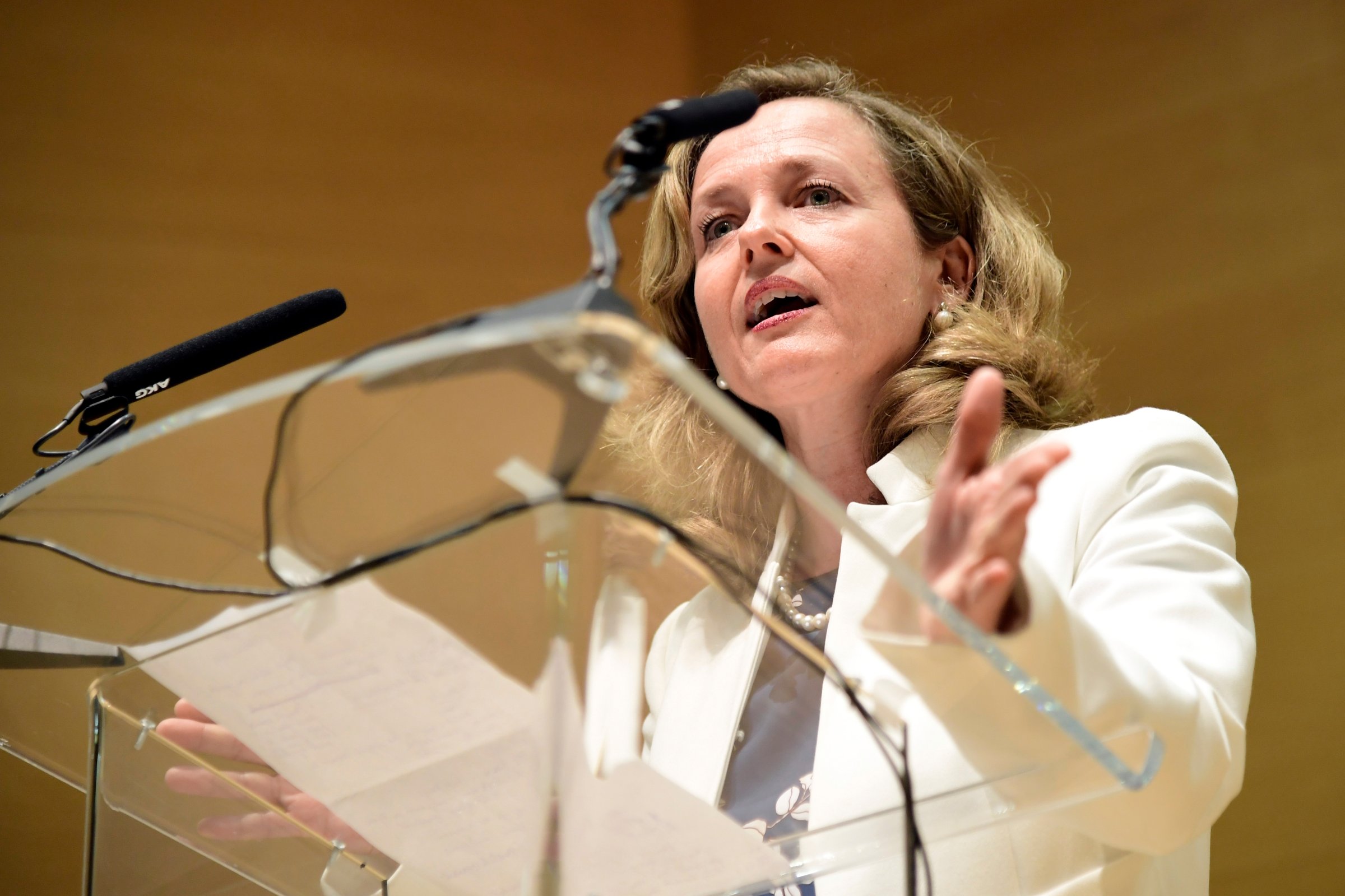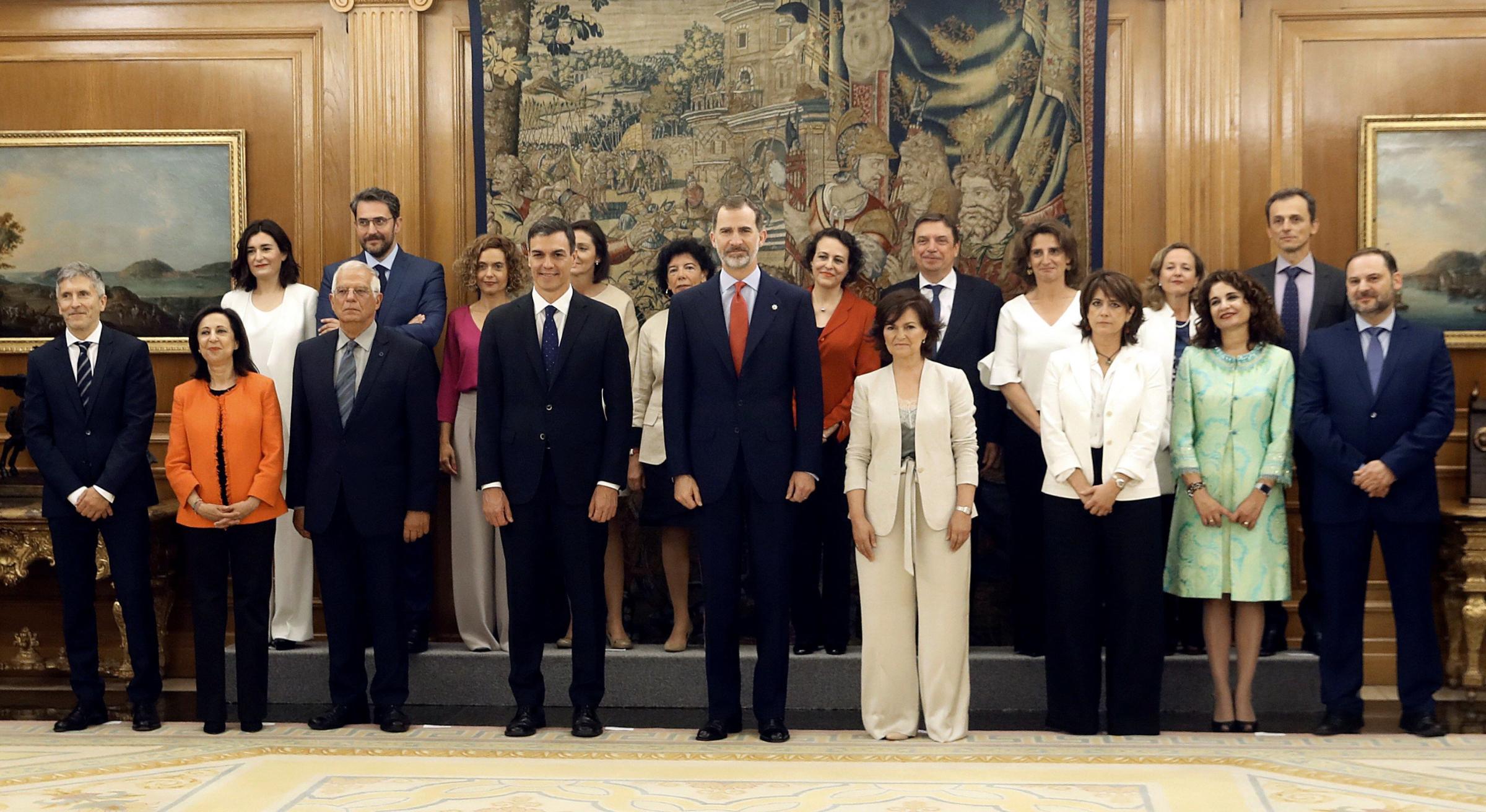
Spain’s new prime minister unveiled his new government Wednesday, appointing women to the majority of cabinet roles. Women took 11 of 17 roles, including overseeing the economy and finance ministries, the interior ministry, the department of defense and the role of deputy prime minister. Prime Minister Pedro Sánchez, who was sworn in on Saturday, told reporters when announcing his choices said it was “pro gender parity and cross-generational.”
Sánchez, of the Socialist Workers’ party, took office after his predecessor, the center-right politician Mariano Rajoy lost a vote of no confidence in his government on June 1 following a corruption scandal. Though Sánchez won the vote to replace Rajoy, thanks to support from left-wing rival Podemos and Basque and Catalan nationalist parties, Sanchez’s party holds only 84 of the 350 seats in the Spanish parliament. That means he may face problems passing legislation.
But his cabinet has already made history, with the most women in government since Spain became a democracy in 1978. It is also notable for the women taking many of the most prominent roles.
Maria Jesús Montero, takes the finance ministry after holding a similar role in Spain’s Andalusia region, and Nadia Calviño takes the economy ministry—both important roles in addressing Sanchez’s promise to tackle “urgent social issues.”
Spain grew at a rate of 3.1 percent last year, according to data from the European Commission. While that’s stronger than many of its European counterparts, the fourth largest economy in the European Union still has one of the largest unemployment rates, at 16.3%, and 35% among under 25s (only Greece’s rates are higher). It will need to keep public expenditure within E.U.-set limits.

Brussels will be relieved by the outwardly pro-E.U. statement Sánchez has made in his cabinet appointments, particularly with Calviño, who is familiar with the workings of the European institutions. As well as previous roles in Spain’s economy ministry, she also worked at the European Commission as director general of the budget department.
Another sign of Sanchez’s eagerness to appear amenable to the bloc is the appointment of Josep Borrell as foreign minister. He was a former president of the European Parliament, and also one of two Catalans in the government—both of whom opposed to Catalan secessionist movement that last year made a unilateral and unconstitutional attempt to declare independence from Madrid.
The other Catalan is Meritxell Batet, and significantly, she has been appointed to the ministry for Spain’s regions. The role will be responsible for building relationships across several regions with strong separatist movements, including Catalonia, which has finally got a new government after eight months of rule from Madrid. The Spanish prime minister has said he is prepared to rebuild relationships with Catalan government, but has made it clear that he sees the constitution—which makes explicit Spain’s “indissoluble unity”—as inviolable.
Other appointments include new deputy prime minister and minister for equalities Carmen Calvo, who served as culture minister in the Socialist government of José Luis Rodríguez Zapatero from 2004-2007. Former judge and minister Margarita Robles will serve as minister for defense, and former astronaut Pedro Duque as science minister.
Correction: The original version of this story misstated the role of Josep Borrell. He was the president of the European Parliament, not the president of the European Union.
More Must-Reads from TIME
- Breaking Down the 2024 Election Calendar
- How Nayib Bukele’s ‘Iron Fist’ Has Transformed El Salvador
- What if Ultra-Processed Foods Aren’t as Bad as You Think?
- How Ukraine Beat Russia in the Battle of the Black Sea
- Long COVID Looks Different in Kids
- How Project 2025 Would Jeopardize Americans’ Health
- What a $129 Frying Pan Says About America’s Eating Habits
- The 32 Most Anticipated Books of Fall 2024
Contact us at letters@time.com